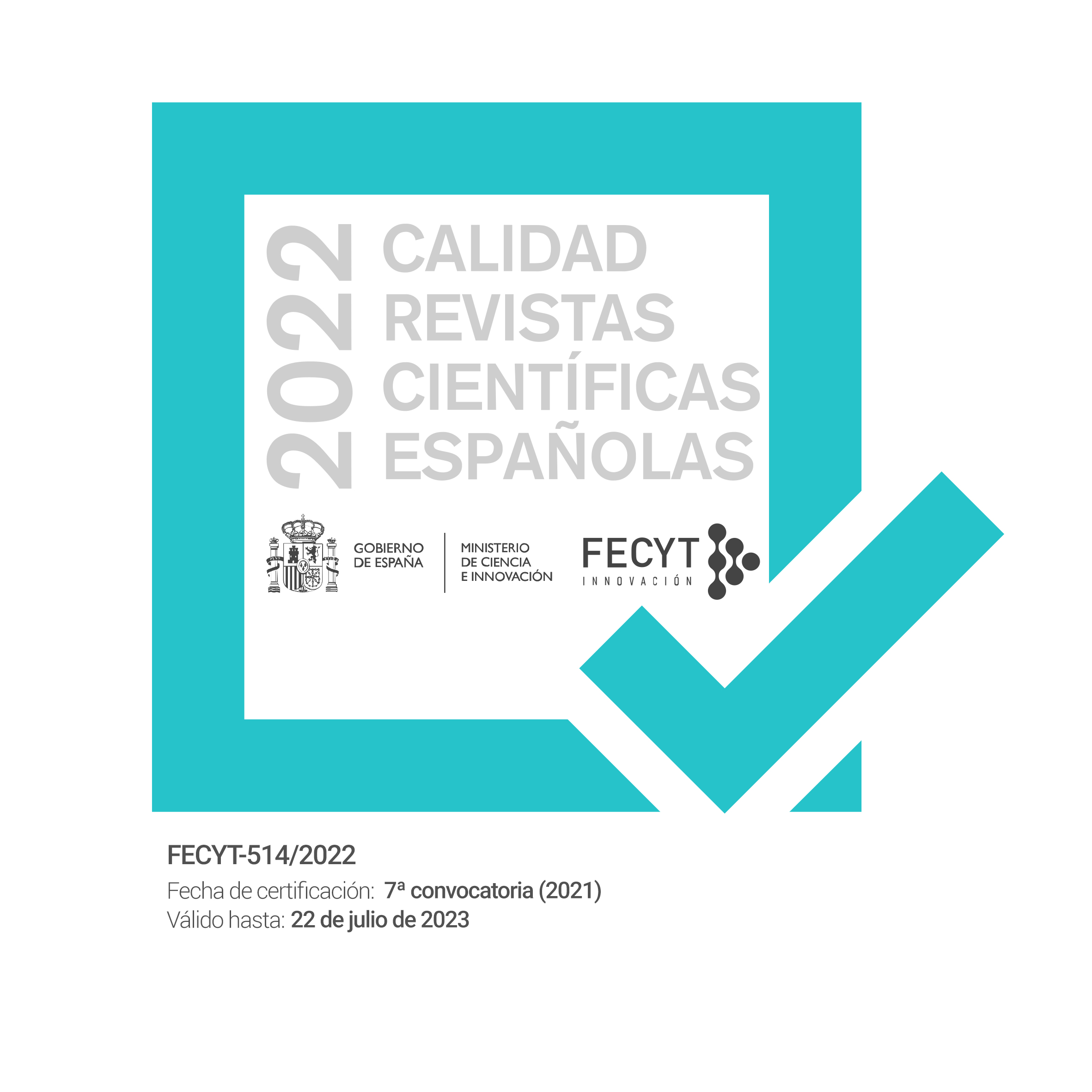Geographies of Hope
Reading Becky Chambers’ Record of a Spaceborn Few as Utopia
DOI:
https://doi.org/10.12795/REN.2024.i28.1Palabras clave:
Science Fiction, Speculative Fiction, Hope, Utopia, Becky Chambers, Record of a Spaceborn FewResumen
Becky Chambers se ha vuelto conocida por sus obras de ciencia ficción que denuncian la desigualdad social al tiempo que reimaginan mundos más amables y esperanzadores. Este artículo se centra en la tercera novela de Chambers, Record of a Spaceborn Few (2018), la cual sigue al ‘Exodus Fleet’, un grupo de naves espaciales habitadas por los descendientes de las últimas personas que abandonaron la tierra tras una serie de catástrofes ecológicas. El ‘Fleet’ se presenta como un vehículo de esperanza, ya que la vida dentro de estas naves se organiza de acuerdo con principios marxistas de apoyo mutuo y solidaridad horizontal. El objetivo de este artículo es analizar los mundos alternativos que propone Chambers como espacios de esperanza, tanto físicos como metafóricos, a la vez que explora cómo la obra ejemplifica el potencial radical de la ciencia ficción para crear diferentes realidades que van más allá de los imaginarios capitalistas y neoliberales y cuestionan que consideramos ‘normal’ y ‘posible’.
Descargas
Citas
ABENSOUR, Miguel. “Persistent Utopia”, Constelations, vol. 15, no. 3, 2008, pp. 407-421.
ADMIRAND, Peter. “Compassionate, Gentler Sci-Fi: Extraterrestrial, Interspecies’ Dialogue (EID) in Becky Chambers’ Wayfarers Series.” Ex-centric Narratives: Journal of Anglophone Literature, Culture and Media, vol. 5, 2021, pp. 124-136.
BACON, Francis. The New Atlantis. Dodo Press, 2006.
BASTANI, Aaron. Fully Automated Luxury Communism: A Manifesto. Verso, 2019.
BLOCH, Ernst. The Principle of Hope (Volumes 1–3). The MIT Press, 1986.
BOUCHER, Geoffrey. “Revolutionary Hope in Dark Times: Zizek on Faith in the Future.” Religions, vol. 11, no. 5, pp. 1-14.
BRENNER, Neil, and Stuart Elden. Henri Lefebvre on State, Space, Territory. International Political Sociology, vol. 3, no. 4, 2009, 353-377.
BUTLER, Judith. Undoing Gender. Routledge, 2004.
CAVENDISH, Margaret. The Blazing World. Mint Editions, 2021 [1666]
CHAMBERS, Becky. Record of a Spaceborn Few. Harper Voyager, 2018.
--. A Psalm for the Wild-Built. Tor, 2021.
--. A Prayer for the Crown-Shy. Tor, 2022.
COLLIER, Laura, and Kathryn Prince. “Gender Euphoria in Space Utopia”, in The Routledge Companion to Gender and Science Fiction, edited by Lisa Yaszek, Routledge, 2023, 310-317.
DE CERTEAU, Michel. The Practice of Everyday Life. University of California Press, 1984.
FERNS, Chris. Narrating Utopia: Ideology, Gender, Form in Utopian Literature. Liverpool University Press, 1999.
FIRTH, Rhiannon. “The Utopian Model of Social Change”, in A Return to the Island, Nowhere, edited by Helena Lugo, 2018, pp. 38-41.
--. “Utopianism and Intentional Communities.” In The Palgrave Handbook of Anarchism, edited by Carl Levy and Matthew S. Adams, Palgrave Mcmillan, 2019, pp. 491-510.
FULK, Kirkland. “Through the Wormhole with Karl Marx: Science Fiction, Utopia, and the Future of Marxism in P.M.'s Weltgeist Superstar.” German Quarterly, vol. 70, no. 1, pp. 55-70.
GIROUX, Henry A. 2004. “When Hope is Subversive”. Tikkun, vol. 19, no. 6, pp. 38-41.
HARVEY, David. Spaces of Hope. Edinburgh University Press, 2000.
HARTMANN, Doreen. “Space Construction as Cultural Practice: Reading William Gibson’s Neuromancer with Respect to Postmodern Concepts of Space.” In In Futurescapes: Space in Utopian and Science Fiction Discourses, edited by Ralph Pordzuk, Rodopi, 2009, 275-301.
HOOKS, bell. Teaching Community: A Pedagogy of Hope. Routledge, 2003
JAMESON, Fredric. Postmodernism, or, The Cultural Logic of Late Capitalism. Verso, 1991.
--. Archaeologies of the Future: The Desire Called Utopia and Other Science Fiction. Verso, 2005.
Kurtović, Larisa, and Nelli Sargsyan. “After Utopia: Leftist Imaginaries and Activist Politics in the Postsocialist World”, History and Anthropology, vol. 30, no. 1, 2019, pp. 1-19
LEFEBVRE, Henri. The Production of Space. Wiley, 1992.
LE GUIN, Ursula K. Contar es Escuchar: Sobre la Escritura, la Lectura, la Imaginación. Círculo de Tiza, 2017.
LOTHIAN, Alexis. Old Futures: Speculative Fiction and Queer Possibility. New York University Press, 2019.
MANCUSO, Cecilia. “Multiplicative Speculations: What We Can Learn from The Rise and Fall of Hopepunk.” ASAP Journal, vol. 6, no. 2, 2021, pp. 459-483.
MANZANAS Calvo, Ana Mª, and Jesús Benito Sánchez. Cities, Borders and Spaces in Intercultural American Literature and Film. Routledge, 2011.
MARTÍNEZ VICENTE, Layla. Utopía No es Una Isla. Episkaia, 2020.
MOYLAN, Tom. Scraps of the Untainted Sky: Science Fiction, Utopia, Dystopia. Routledge, 2018.
PORDZUK, Ralph. “Introduction: The Overlaid Spaces of Utopia.” In Futurescapes: Space in Utopian and Science Fiction Discourses, edited by Ralph Pordzuk, Rodopi, 2009, pp. 17-24.
ROMERO ROLDÁN, Vanesa. 2022. “Transhumanism and the Anthropocene in Becky Chambers’ A Closed And Common Orbit.” Revista de Estudios Norteamericanos, vol. 26, no 1, 2022, pp. 77-106.
THALER, Mathias. “Hope Abjuring Hope: On the Place of Utopia in Realist Political Theory.” Political Theory, vol. 46, no. 5, 2018, pp. 671-697.
TOMIN, Brittany. “Worlds in the Making: World Building, Hope, and collaborative Uncertainty.” Journal of the American Association for the Advancement of Curriculum Studies, vol. 14, no. 1, 2020, pp. 1-15.
WEBB, Darren. “Pedagogies of Hope.” Studies in Philosophy and Education, vol. 32, no. 1, 2013, pp. 394-414.
WEST, Cornell. Hope on a Tightrope. Smiley Books, 2008.
Descargas
Publicado
Versiones
- 2024-04-04 (2)
- 2024-04-04 (1)






